Imagine a visit to a doctor where a simple blood test provides the key to your genetic code, and with that information, the doctor can base your care precisely on the treatment that will work best for you. No longer will it be one medicine, dosage, or treatment plan fits all—each patient will get the care that best fits his or her genetic makeup.
It's always satisfying to see one's alma mater do important things. Inexpensive gene sequencing from a simple blood test certainly qualifies. See (from the University of Illinois Department of Engineering) "Novel DNA sensing technology could revolutionize modern medicine."
Novel
DNA sensing technology could revolutionize modern medicine - See more
at:
http://engineering.illinois.edu/news/article/2013-10-21-novel-dna-sensing-technology-could-revolutionize-modern-medicine?utm_medium=email&utm_campaign=News+from+Engineering+at+Illinois+-+December+2013&utm_content=News+from+Engineering+at+Illinois+-+December+2013+CID_933635bac16b888fa97fa3859ceaa927&utm_source=CampaignMonitor&utm_term=Novel%20DNA%20sensing%20technology%20could%20revolutionize%20modern%20medicine#sthash.LutBCEvH.dpuf
Imagine
a visit to a doctor where a simple blood test provides the key to your
genetic code, and with that information, the doctor can base your care
precisely on the treatment that will work best for you. No longer will
it be one medicine, dosage, or treatment plan fits all—each patient will
get the care that best fits his or her genetic makeup. - See more at:
http://engineering.illinois.edu/news/article/2013-10-21-novel-dna-sensing-technology-could-revolutionize-modern-medicine?utm_medium=email&utm_campaign=News+from+Engineering+at+Illinois+-+December+2013&utm_content=News+from+Engineering+at+Illinois+-+December+2013+CID_933635bac16b888fa97fa3859ceaa927&utm_source=CampaignMonitor&utm_term=Novel%20DNA%20sensing%20technology%20could%20revolutionize%20modern%20medicine#sthash.z8RxlQKR.dpuf
Sticking with biology, but looking way back, consider (from Fox News) "Evidence of 3.5-billion-year-old bacterial ecosystems may be earliest sign of life on Earth." That's about 100 million years earlier than past evidence of terrestrial life.
Imagine
a visit to a doctor where a simple blood test provides the key to your
genetic code, and with that information, the doctor can base your care
precisely on the treatment that will work best for you. No longer will
it be one medicine, dosage, or treatment plan fits all—each patient will
get the care that best fits his or her genetic makeup. - See more at:
http://engineering.illinois.edu/news/article/2013-10-21-novel-dna-sensing-technology-could-revolutionize-modern-medicine?utm_medium=email&utm_campaign=News+from+Engineering+at+Illinois+-+December+2013&utm_content=News+from+Engineering+at+Illinois+-+December+2013+CID_933635bac16b888fa97fa3859ceaa927&utm_source=CampaignMonitor&utm_term=Novel%20DNA%20sensing%20technology%20could%20revolutionize%20modern%20medicine#sthash.z8RxlQKR.dpuf
A major gap in global climate modeling is the omission of clouds. That's a big deal. Some cloud types trap heat in the lower atmosphere, reinforcing the greenhouse effect. Other cloud types reflect sunlight and keep it from ever entering the lower atmosphere, for a cooling effect. So what's the net worldwide influence of clouds? Unknown.
Now consider (from Physicsworld.com) that "Physicists claim further evidence of link between cosmic rays and cloud formation." Such a linkage would matter because the intensity of cosmic rays in Earth's vicinity varies with the solar magnetic field. (Yes, the sun's magnetic field varies.) Naturally, more research is needed ...
Still dealing with the sun, a tidbit from last fall: "Extreme 'Solar Storms' May Have Caused Twenty Six Recent 'Satellite Glitches': Study." Because I used a coronal mass ejection (the most dramatic type of solar storm) as a plot element in Energized, I found that especially interesting.
Meanwhile, Scientific American informs us that "Electron Appears Spherical, Squashing Hopes for New Physics Theories." (Too round for the electron to have any meaningful dipole moment, to be specific.)
Time after time, attempts to move beyond the Standard Model of particle physics have fallen flat. Supersymmetry, in particular, is looking less and less likely as a New Improved Model. That's too bad, since supersymmetry underpins many attempts to move string theory beyond fun with numbers.
From the social sciences, consider (from TIME), "America’s Mood Map: An Interactive Guide to the United States of Attitude." Living, as I do, next door to West Virginia, I had to read any article starting "West Virginia is the most neurotic state ..." Take TIME's test to find out which state most suits you.
We'll end for the week, from Yahoo, with "The top 9 obsolete tech gadgets." Right after the holidays, it's good to know what gadgets not to buy :-)
Imagine
a visit to a doctor where a simple blood test provides the key to your
genetic code, and with that information, the doctor can base your care
precisely on the treatment that will work best for you. No longer will
it be one medicine, dosage, or treatment plan fits all—each patient will
get the care that best fits his or her genetic makeup. - See more at:
http://engineering.illinois.edu/news/article/2013-10-21-novel-dna-sensing-technology-could-revolutionize-modern-medicine?utm_medium=email&utm_campaign=News+from+Engineering+at+Illinois+-+December+2013&utm_content=News+from+Engineering+at+Illinois+-+December+2013+CID_933635bac16b888fa97fa3859ceaa927&utm_source=CampaignMonitor&utm_term=Novel%20DNA%20sensing%20technology%20could%20revolutionize%20modern%20medicine#sthash.z8RxlQKR.dpuf
Imagine
a visit to a doctor where a simple blood test provides the key to your
genetic code, and with that information, the doctor can base your care
precisely on the treatment that will work best for you. No longer will
it be one medicine, dosage, or treatment plan fits all—each patient will
get the care that best fits his or her genetic makeup. - See more at:
http://engineering.illinois.edu/news/article/2013-10-21-novel-dna-sensing-technology-could-revolutionize-modern-medicine?utm_medium=email&utm_campaign=News+from+Engineering+at+Illinois+-+December+2013&utm_content=News+from+Engineering+at+Illinois+-+December+2013+CID_933635bac16b888fa97fa3859ceaa927&utm_source=CampaignMonitor&utm_term=Novel%20DNA%20sensing%20technology%20could%20revolutionize%20modern%20medicine#sthash.z8RxlQKR.dpuf






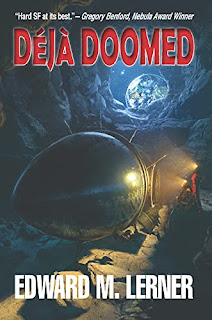
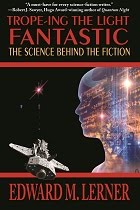


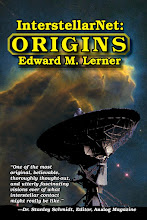



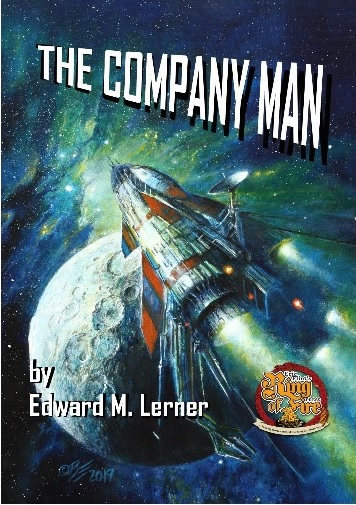







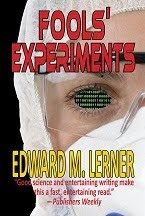
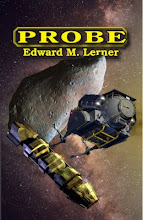






2 comments:
So many wonders coming upon us. How will we cope? As DNA discovers our individuality for medical treatment, will some see that as a challenge? ... oppose uniqueness as a threat to social uniformity and control? And indeed, life is old. As a 9 yo, I was fascinated to read of Roy Chapman Andrews' expedition to find dinosaurs in the Gobi, at 9 that was remote and unreal. At 12 exploring a quarry I pulled up a flat piece of shale intending to spin it like a pie plate. It had three two-inch trilobite fossils on it. I sat and touched each of them, suddenly the past was real; these creatures died on this spot so long ago, right where I sat. The cloud mystery is just one of many that climate science ... whatever that is ... will find inconvenient. Science is wonderful and complex, stirring to those who want to see it, defying those who want it to control it's message.
How will we cope? Finding out is the fun of it :-)
- Ed
Post a Comment